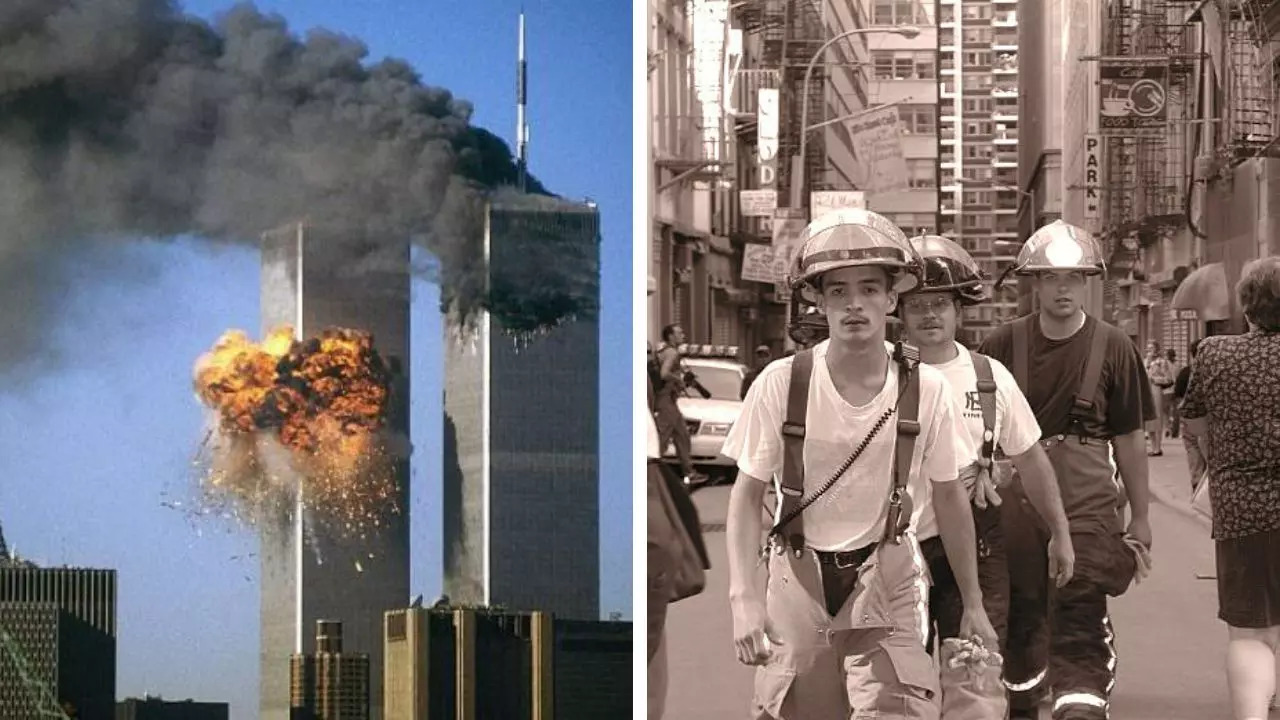In addition to chemical exposure, the collapsed Twin Towers also contained a wide variety of hazardous materials that were harmful to the brain.
Twenty-three years after the United States suffered one of its worst tragedies, in which nearly 3,000 people died, the events of September 11 continue to pose a variety of health problems for first responders. According to studies, thousands of firefighters, construction workers and police officers who were at the site where the World Trade Center Twin Towers collapsed on September 11, 2001, now face increased risks of dementia.
According to research, first responders who were on site at least a year after the attacks were exposed to high levels of toxic dust. The most exposed workers, in addition to facing lung-related problems and cancer, are also much more likely to suffer from dementia before the age of 65.
According to New York’s Stony Brook University, the comparison has compared first responders to those who worked at the site but were not exposed to dust or wore effective personal protective equipment (PPE). Researchers say the dust and debris from the WTC collapse contained extremely high levels of neurotoxins, chemicals that damage the nervous system by altering its structure or function.
How does debris from collapsed buildings increase dementia risk?
According to experts, constant exposure to chemical-laden waste was dangerous and led to the onset of dementia before the age of 65 among exposed patients. The local pathology of neurotoxin exposure includes neuronal excitotoxicity or apoptosis, which causes damage to glial cells. Due to widespread damage to the central nervous system, it can lead to various brain-related problems such as intellectual disability, persistent memory impairment, epilepsy, and even cognitive decline such as dementia.
The new findings of the study were published in June of this year in the journal JAMA Network Open.
Researchers said that in addition to chemical exposure, the collapse of the Twin Towers also involved a wide variety of hazardous materials (powdered glass, lead, polycyclic aromatic hydrocarbons, polychlorinated biphenyls and dioxins), all of which have harmful effects on brain health. In addition, inhaled air pollutants, including particulate matter, have been identified as a possible risk factor for early onset dementia.
What did the study find?
Researchers examined levels of exposure to toxins and rates of early-onset dementia among more than 5,000 people who had worked at or near the site of the World Trade Center collapse. Those who worked “for at least four hours during the period from September 11 to September 14, 2001, for 24 hours at any other time in September, or for at least 80 hours during the entire response period from September 11, 2001, to July 31, 2002,” were considered first responders, the researchers said.
Study participants were divided based on estimated levels of exposure to toxins. Workers in the lowest risk category were considered to be those who had not been exposed to that type of toxin or who were protected from exposure by the consistent use of PPE. The average age of respondents at the time of the study was 53 years, and most of them were men.
In 2022, researchers identified at least 228 cases of dementia before age 65 based on how much toxic dust they had been exposed to. Compared with the lowest-risk group, those in the “mild” exposure group were more than 12 times more likely to receive a dementia diagnosis; those in the “high” exposure group faced a 30-fold higher risk; and those who had been “severely” exposed faced a more than 42-fold higher risk, the research showed.
And finally, the researchers said there was a 42 percent higher chance of developing early-onset dementia, compared with workers with the lowest level of exposure to toxins.
PPE suits can help workers prevent cognitive illnesses
The scientists said one of the most important takeaways from the study was that consistent use of PPE helps workers prevent future illness and premature death if they are caught in similar situations. “There is a critical need to protect people assisting in rescue and recovery operations after an unexpected industrial accident,” the researchers said. “Disasters often require emergency response under hazardous conditions, but reliable use of PPE could help prevent the onset of dementia before age 65 among people exposed to an uncontrolled building collapse,” they wrote.
Disclaimer:
The information contained in this post is for general information purposes only. We make no representations or warranties of any kind, express or implied, about the completeness, accuracy, reliability, suitability or availability with respect to the website or the information, products, services, or related graphics contained on the post for any purpose.
We respect the intellectual property rights of content creators. If you are the owner of any material featured on our website and have concerns about its use, please contact us. We are committed to addressing any copyright issues promptly and will remove any material within 2 days of receiving a request from the rightful owner.

